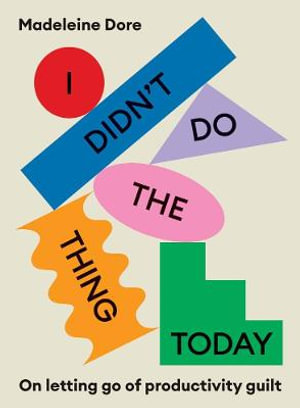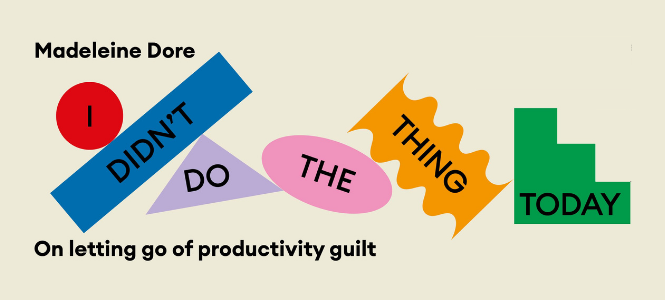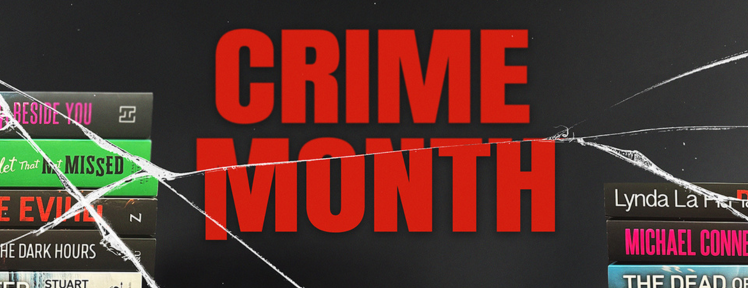Madeleine Dore is a writer and interviewer exploring how we can broaden the definition of a day well spent. As a labour of love, Madeleine spent years asking creative thinkers how they navigate their days on her popular blog Extraordinary Routines and podcast Routines & Ruts. She now dabbles in various freelance projects and tries to hold things lightly.
Today, Madeleine Dore is on the blog to answer a few questions about her brand new book, I Didn’t Do the Thing Today, a book about letting go of productivity guilt. Read on!
Please tell us about your book, I Didn’t Do The Thing Today!
MD: I Didn’t Do the Thing Today is an antidote to our doing-obsession. Designed as a companion for the days that go off track, the book’s chapters explore the various ways we encounter productivity guilt—including comparison to others, striving for perfectionism, and our great expectations.
For anyone struggling with sticking to a routine or checking off their to do list, I Didn’t Do the Thing Today shares how to take productivity off its pedestal and find more connection, creativity, and curiosity in its place.
What is ‘productivity guilt’ and why do you think so many of us experience it?
MD: There are many guises to productivity guilt: It’s that feeling that you’re not doing enough, that you’re doing too much, that you’re wasting time or falling behind. Just as there are many forms, there are also many reasons why we experience it. When our days don’t go to plan—because of bosses, because of kids, because of a sunny afternoon, because of life—we can encounter productivity-guilt spiral.
We try and fail and try again to live up to the pressures and demands placed on our days, and when we inevitably don’t meet society’s expectations—or our own—we can feel a sense of guilt, shame and anxiety. We might then seek out the latest productivity hack to bring us closer to our idealized achievements, and when we slip up once again, the productivity-guilt spiral sets in.
Instead of recognising we’re in a system full of false promises that sets us up to fail, we place the blame wholly on ourselves and rinse and repeat the search for the thing to fix. Productivity guilt becomes a negative feedback loop—but we can find ways out of the loop. As my book explores, we can untether from the idea that productivity is the sole measure of our worth.
Can you give us an example of a time when you let go of productivity guilt and embraced the messiness? How did you work through it?
MD: One guise of productivity guilt is interestingly this search for ‘work life’ balance—when we rely on finding balance to ‘fix’ us, it can become an impossible standard we set for ourselves that can leave us feeling guilty and anxious if we don’t achieve it.
What’s more realistic, perhaps, is to recognise that work and life is a balancing act. Instead of striving for balance and stability, we can embrace what I call the “wobble”—rather than striving for a life of perfect order, we can wobble between those tasks and commitments that are most meaningful, pressing or simply desirable in each moment. The best we can strive for is not balance, but rather balancing—when we learn to be more open to the ebb and flow, we can let our days unfold in front of us with enjoyment rather than judgement.
‘I think making creativity the measure of our days in place of productivity can be a more accessible and malleable approach. Irrespective of our life circumstances, each of us are given a day, and within it, there is always something to experiment with.’
You run the blog Extraordinary Routines and also host a podcast, Routines & Ruts. Did this inspire your thinking for this book?
MD: Absolutely — this book is the culmination of everything I’ve learned about how to reframe our obsession with output and productivity.
Like many in our society I’ve felt the pressure to be productive — I’ve tried every hack, every way to optimize my day, only to keep falling short and feeling behind. I turned to interviewing hundreds of creative thinkers and experts to find the secret to productivity, only to find there isn’t one.
Instead, compiling lessons from creatives around the globe helped me realize that you don’t need to be “a creative” to live a creative life. For example, illustrator Mari Andrew taught me to set goals based on how you want to feel, rather than what you want to achieve. Artist and author Austin Kleon helped me replace my elaborate fantasy schedules with a simple checkbox for each day. Renowned Australian painter Ken Done once told me he keeps a farting gnome figurine in his studio to remind him not to take himself so seriously—and now I keep a similar reminder as my mobile phone’s wallpaper.
I think making creativity the measure of our days in place of productivity can be a more accessible and malleable approach. Irrespective of our life circumstances, each of us are given a day, and within it, there is always something to experiment with. It’s less about doing more, and more about doing it more creatively.
Who did you write this book for? Who do you wish would read it?
MD: It’s for anyone who has felt the pressure to do more, be more, achieve more. This could be a student, a manager, a stay-at-home parent, a freelance.
Perhaps they’ve found themselves stuck in the productivity-guilt spiral after testing different inbox hacks and devising impossible morning routines, only to tumble over when real life and responsibilities get in the way. It is for those people who have tried to perfect their routines, tick off their to-dos, and cross off their calendars—and have found themselves left feeling listless. Instead of trying to fix and change our lives, this book is about deepening our lives.
Can you tell us a little bit about your journey towards becoming a writer?
MD: After graduating, it was proving difficult to find a job in my field as a journalist so I followed the advice ‘if you can’t find the job you want, create it for yourself’ and started my interview project Extraordinary Routines as a labour of love. It was a way to build my portfolio as a writer but also learn how people approach their days and careers. This eventually led to a job as a staff writer for an online arts publication. I kept up my side projects and eventually went freelance and continued to learn through creating new projects when I had the time and curiosity — which then led to writing this very book!
What is the last book you read and loved?
MD: What I Talk About When I Talk About Running by Haruki Murakami hugely influenced by days — and approach to writing through the analogy and powerful lessons of running.
What do you hope readers will discover in I Didn’t Do The Thing Today?
MD: Instead of seeking yet another yo-yo solution, my hope is this book will lead readers to a more sustainable one. In place of tips and tricks to increase productivity, work smarter, and get more done, this book will encourage readers to let go of productivity-guilt and find their own way to approach their days and how they define their worth.
And finally, what’s up next for you?
MD: I’m learning to be more open to the uncertainty of what’s next — but my hope is there will be more things to learn, and more words to write.
Thanks Madeleine!
—I Didn’t Do the Thing Today by Madeleine Dore (Murdoch Books) is out now.

I Didn't Do The Thing Today
Limited Signed Copies Available!
Any given day brings a never-ending list of things to do. There's the work thing, the catch-up thing, the laundry thing, the creative thing, the exercise thing, the family thing, the thing we don't want to do, the thing we've been putting off (despite it being the most important thing). Even on days when we get a lot done, the thing left undone can leave us feeling guilty, anxious or disappointed.
After five years of searching for the secret to productivity, Madeleine Dore discovered there isn't one...








 What do we know about the Boy Swallows Universe Netflix show?
What do we know about the Boy Swallows Universe Netflix show?  Booktopia’s top thrilling fiction picks for Crime Month
Booktopia’s top thrilling fiction picks for Crime Month  Booktopia’s Top First Nations Book Recommendations for 2023
Booktopia’s Top First Nations Book Recommendations for 2023
Comments
No comments